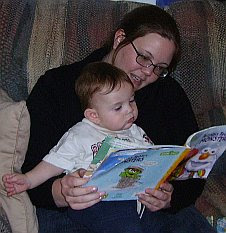
On the back cover of Gregor the Overlander, author Suzanne Collins, is said to have been “inspired to write (the book) when she wondered what city kids must make of Alice and Wonderland.” However, Collins infuses other influential authors and works into Gregor; intentionally and unintentionally. Carroll’s Wonderland is just the beginning.
Collins seems to draw inspiration from Franz Kafka in her “Crawlers.” Crawlers are overgrown cockroaches that are capable of speech and thought. While Gregor never actually BECOMES a cockroach—or “cockhorse” as the underland king misnames them—he does encounter two very human-like bugs.
Ideas reminiscent of Jules Verne’s Journey to the Center of the Earth also permeate the text. When Gregor falls, he is transported to an underground maze that eventually leads to an entire underground world. Where Collins parts from Verne is that her underground world has humans. In this respect, Collins mergers her idea with Jeanne DuPrau as the human population is not accidental, but placed there for the purpose of human survival after the surface is destroyed. It would have been difficult for DuPrau to inspire Collins (or vice versa) with the idea of an underground city because both authors’ were published in the same year.
There is also a hint of C.S. Lewis’ Narnia that can be found in Gregor the Overlander. After falling down a dryer shaft, Gregor encounters talking beasts that inhabit a seemingly magical land (magical in the sense of impossible—not actual magic as in Narnia).
With all those other books flowing through the veins of Gregor, Collins still manages to strike out a good story of her own. Collins presents a well rounded and well developed cast whose likes, dislikes, and personality flaws give the story many opportunities for set-ups and pay-offs. For example, Boots’ love of purple prompts her to poke Luxa in the eye and prove her ability to conquer within seconds of meeting the girl.
The main character, Gregor, seems to be more caring or perhaps responsible than most eleven year olds might be, but there are times when his youth gets the best of him. Gregor dislikes Luxa from the start, but ultimately sees her for what she really is—a child still hurting from her parent’s death. Gregor’s thoughts in the book are what propel the story as well as add humor and depth to the protagonist. When Gregor first enters the underland and meets up with Temp (readers’ won’t know his name for a while), who asks what smells so good. In that passage, Gregor thinks, “Be cool, be nice, answer the bug.” Gregor tries to make the best of his situation.
All in all, the book offers an interesting plot, well developed characters, a few unforeseen twists, and a quest that is worthy of Joseph Campbell’s hero cycle. Collins plays with words and concepts in such a way to set up the next books to come, but does not give everything away too soon. A good beginning to what I hope will be a good series.
Collins seems to draw inspiration from Franz Kafka in her “Crawlers.” Crawlers are overgrown cockroaches that are capable of speech and thought. While Gregor never actually BECOMES a cockroach—or “cockhorse” as the underland king misnames them—he does encounter two very human-like bugs.
Ideas reminiscent of Jules Verne’s Journey to the Center of the Earth also permeate the text. When Gregor falls, he is transported to an underground maze that eventually leads to an entire underground world. Where Collins parts from Verne is that her underground world has humans. In this respect, Collins mergers her idea with Jeanne DuPrau as the human population is not accidental, but placed there for the purpose of human survival after the surface is destroyed. It would have been difficult for DuPrau to inspire Collins (or vice versa) with the idea of an underground city because both authors’ were published in the same year.
There is also a hint of C.S. Lewis’ Narnia that can be found in Gregor the Overlander. After falling down a dryer shaft, Gregor encounters talking beasts that inhabit a seemingly magical land (magical in the sense of impossible—not actual magic as in Narnia).
With all those other books flowing through the veins of Gregor, Collins still manages to strike out a good story of her own. Collins presents a well rounded and well developed cast whose likes, dislikes, and personality flaws give the story many opportunities for set-ups and pay-offs. For example, Boots’ love of purple prompts her to poke Luxa in the eye and prove her ability to conquer within seconds of meeting the girl.
The main character, Gregor, seems to be more caring or perhaps responsible than most eleven year olds might be, but there are times when his youth gets the best of him. Gregor dislikes Luxa from the start, but ultimately sees her for what she really is—a child still hurting from her parent’s death. Gregor’s thoughts in the book are what propel the story as well as add humor and depth to the protagonist. When Gregor first enters the underland and meets up with Temp (readers’ won’t know his name for a while), who asks what smells so good. In that passage, Gregor thinks, “Be cool, be nice, answer the bug.” Gregor tries to make the best of his situation.
All in all, the book offers an interesting plot, well developed characters, a few unforeseen twists, and a quest that is worthy of Joseph Campbell’s hero cycle. Collins plays with words and concepts in such a way to set up the next books to come, but does not give everything away too soon. A good beginning to what I hope will be a good series.
Rating: 4 and a half pages

No comments:
Post a Comment